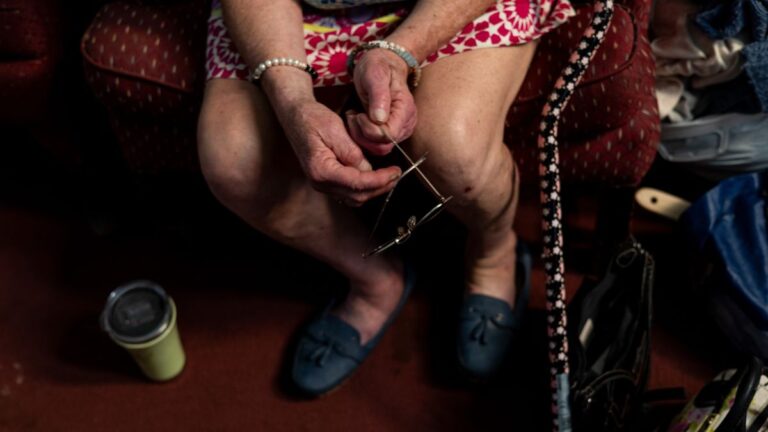A class action lawsuit filed against Maine officials that alleges they failed to create an effective public defense system has cleared two major hurdles.
Superior Court Justice Michaela Murphy granted the ACLU of Maine’s request for class certification on July 13 after she denied the state’s request to dismiss the lawsuit in June. The decision is an important recognition that the problems with Maine’s representation of defendants isn’t isolated to one county or case, but that there is a statewide problem, said Zach Heiden, chief counsel with the ACLU of Maine that represents the plaintiffs.
“The purpose of this case is to fix the system for the entire state,” Heiden said.
Members of the class action may now include, “All individuals who are or will be eligible for the appointment of competent defense counsel by the Superior or District Court… because they have been indicted for a crime punishable by imprisonment, and they lack sufficient means to retain counsel,” according to Murphy’s order.
The ACLU estimates that at any time between 5,800 to 7,200 defendants are eligible to join the class, because they are receiving legal services through the Maine Commission on Indigent Legal Services, or MCILS. The number is always in flux, however, as criminal cases resolve and new cases open.
Maine is unique among states in employing no public defenders. Instead, the state contracts with private attorneys to represent adults and children who are accused of crimes and cannot afford to hire their own lawyer.
MCILS opened in 2010 and in its first decade of operation routinely contracted with lawyers with criminal convictions or histories of professional misconduct, an investigation published in 2020 by The Maine Monitor and ProPublica found. The state also did a spotty job of ensuring that lawyers were eligible for the cases they were being assigned to with at least 2,000 case assignments being made to lawyers who had not demonstrated to MCILS they had the required experience, the news organizations later showed.
State lawmakers approved funding earlier this year to hire the state’s first five public defenders.
The availability of defense lawyers accepting new case assignments is at an all-time low. At the same time, Maine courts are reporting that there are more pending felony and misdemeanor cases at nearly every courthouse compared to before the pandemic, The Maine Monitor recently reported.
Justin Andrus, executive director of MCILS and one of the officials being sued, said the commission continues to need more contracted and employed lawyers. His office has put together a draft budget that would increase the hourly rate for attorneys and open more public defender offices.
“The risk remains real that we are going to hit a crisis point in terms of staffing cases long before we see a judgment in the case. I keep saying that and people get crisis fatigue, and I’ve been saying it for so long that I’m afraid people aren’t hearing me anymore,” Andrus said. “The reality is the lawsuit has the potential to be useful — and I hope it is — but the lawsuit is going to be a day late and a dollar short if things continue on the road that we’re on.”
The class action was filed in March 2022 on behalf of five plaintiffs, who were adults charged with crimes, incarcerated and had received legal assistance from attorneys contracted with MCILS. Their cases have cost them contact with their families, lost their jobs and disrupted medical treatment, Heiden said.
They are seeking a court order that Maine have adequate lawyers to represent clients needing an attorney at the state’s expense, Heiden said. Those lawyers would also need to be properly screened for skills and qualifications, supervised and evaluated by MCILS, he said.
Unlike some other class actions, the plaintiffs are not expected to receive money at the end of the case, Heiden said. The desired outcome is a reformed system.
“All of our named plaintiffs… have agreed to be a part of this case, because they don’t want what happened to them to happen to somebody else and it’s quite remarkable when you think about all that these people are dealing with,” Heiden said.
Andrus and MCILS’s seven commissioners are defendants in the lawsuit, but they do not have direct say in how the case is being litigated.
The Office of the Maine Attorney General determined that it is the state that is being sued. Requests by the commissioners and Andrus to have their own counsel was denied.
The attorney general’s office does not comment on ongoing litigation, a spokeswoman said on Monday.
Samantha Hogan covers government accountability and the criminal justice system for The Maine Monitor. Reach her at gro.r1764798166otino1764798166menia1764798166meht@1764798166ahtna1764798166mas1764798166.








